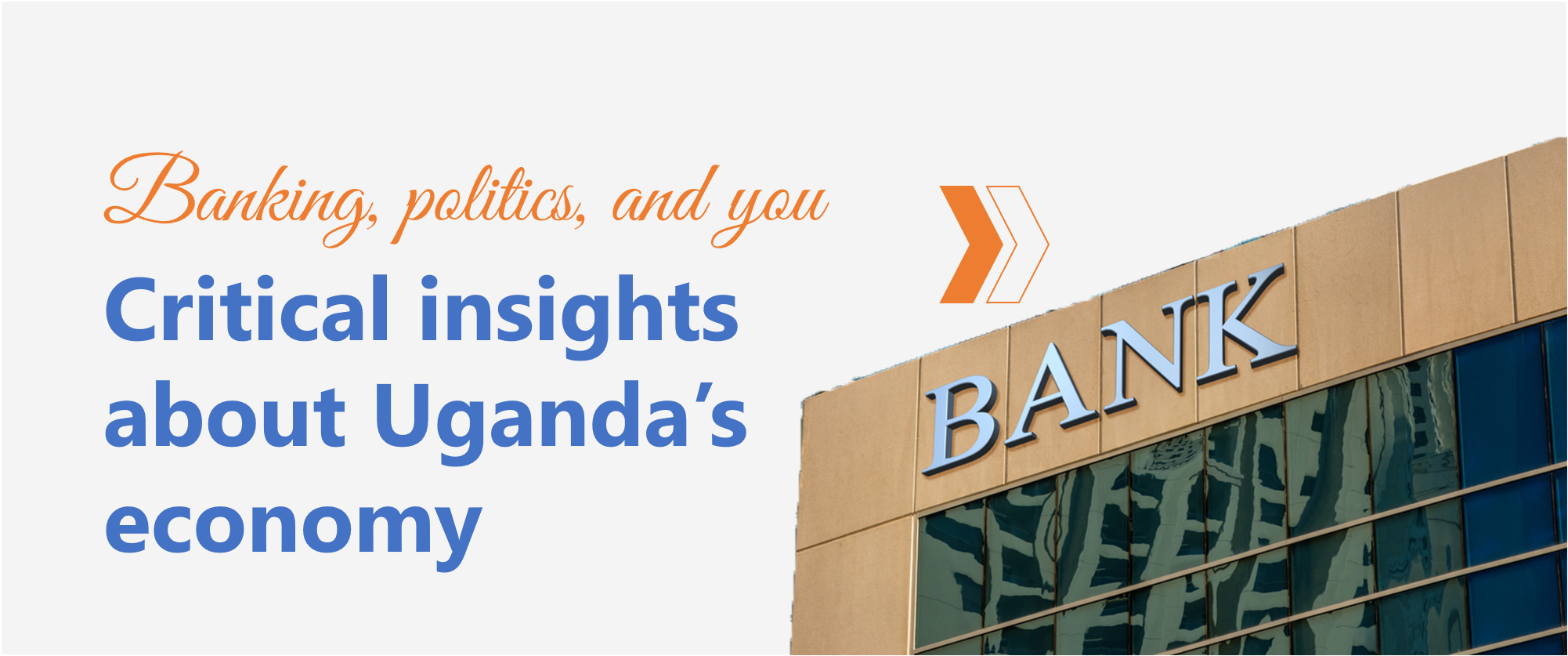The banking industry is central to economic transformation. Following summitBI Banking Sector Report 2020 for Uganda, the Summit Consulting Team answers three questions about i) impact of the 2021 elections on the economy, ii) causes of the persistently high cost to income ratio in banking, and iii) why durables lead to higher loan defaults.
Watch an NTV story about the report here
What is the likely impact of elections on already slowing growth?
Two possible outcomes:
Economic growth (and GDP) are likely to reduce further. During political campaigns, more and more people spend time politicking and attending rallies of their candidates to get money rather than engage in productive activities – business.
Besides, private sector lending is riskier towards (and during) elections. As a result, financial institutions will opt to invest in risk-free treasury bills. This will affect real production.
Inflation. Elections in Uganda involve high expenditure. Towards election, government (through the ruling party) spends a lot to fulfil “voter promises”. The government also spends a lot organizing the elections. Political parties and politicians too are going to spend a lot on campaigns and politicking. The increased amount of money circulating in the economy because of politics without corresponding increased production will spike inflation.
What is the real cause of persistent high cost to income ratios, is it a lost cause?
High administrative costs. The operations of most banks are still manual and expensive. I call them “digital manual banks.” To the public, most banks present themselves as automated, yet internally, the levels of automation are still too low. This leaves the cost of operations higher than they should have been. This should change when banks embrace real automation and reduce unnecessary costs. If for example, you lost your VISA card today, and you contacted your bankers, they will ask you to visit the bank branch instantly. You wonder why would a bank be comfortable taking traffic to a branch instead of removing it from there and considering closing the branch totally as a long-term strategic imperative?
Profit repatriation. Uganda’s financial sector is dominated by foreign banks. They use different methods to get funds back home including apportioned shared services (head office costs are apportioned to subsidiaries which affect their reported profits adversely), management fees (head office charges high management fees to subsidiaries in Uganda as a strategy to reduce taxable profits, even then you will find contracts for such services that must be paid regardless of the profit position), centralized procurement of services (the head office procures even the software for the subsidiary, which makes costs higher when such services could be obtained locally at cheaper costs and efficiency), and deputizing expatriate staff at higher salaries. This may call for more attention by the Bank of Uganda (BOU), the regulator. And for other sectors, the respective regulators should take note and respond accordingly to reduce the economy bleed, which is expected to be even bigger in these Coronavirus times.
The biggest risk for lenders is the purchase of durables like vehicle consumerism. Why is this the case?
Un-productivity of the durables. With no production (and income) from the durable, that has been procured using borrowed funds, the borrower’s sources of income are strained while repaying the loan.
Many bank credit risk assessors need the training to change their approach to credit worthless assessment. Collateral for the bank loan is given more emphasis in the loan assessment at the expense of the character and condition of the borrower. Under current loan assessment, a borrower with property worth US $1m which was inherited from parents could easily get a loan of US $700,000 (assessed as forced sale value) than a person with a sound business model of impeccable character and condition. The loan credit risk assessment favours borrowers with valuable collateral at the expense of other factors. Because not all with valuable property got them due to sound business acumen, banks end giving loans to people without the skills to manage them well. They buy assets instead of putting money in the business. This causes a cash flow mismatch, which causes defaults.
The high cost of borrowing. Loans in Uganda are not cheap. Interest rates above 20% represent some of the highest in the EAC region. Even when the asset is income-generating, it is uncommon to procure a “durable asset” that will be able to pay back at the rate higher than the cost of borrowing. This is part of the reason why some banks are coming up with innovative and loan products that are customized to the payback patterns of the asset procured – and this is changing the results.
Watch an NTV story about the report here
Copyright Summit Consulting Ltd, 2020. All rights reserved.








